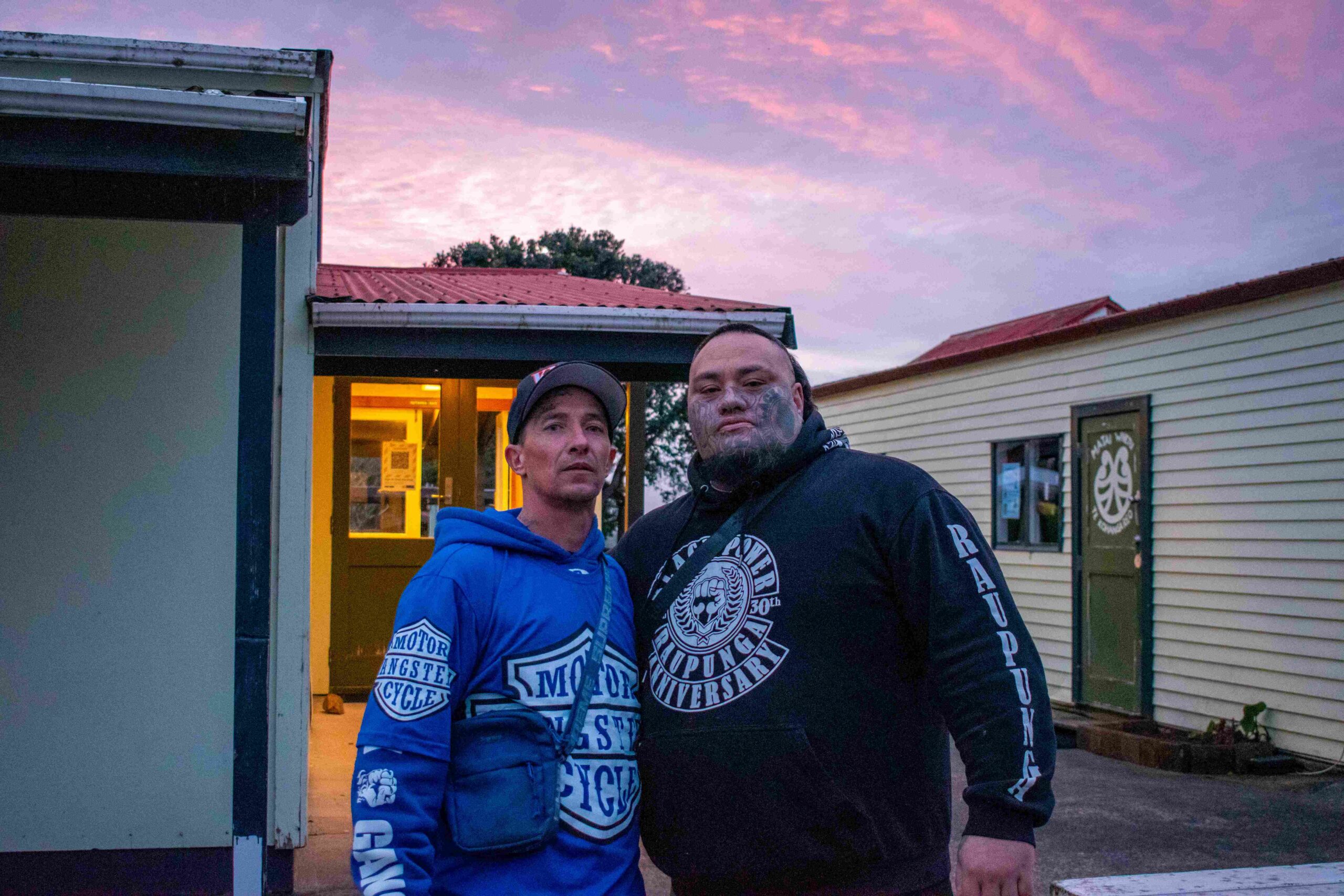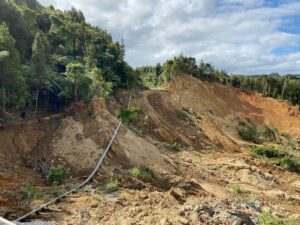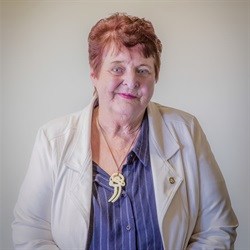In the wake of the government’s November 12 national apology over historical abuse in state care, a group of gang members has been quietly working away to overcome their own trauma.
Members of Black Power and the Mongrel Mob have been attending a series of hui in Thames, where around 40 members have been sharing their stories and learning how to heal from their pasts. The sessions have been held monthly since July.
Among those looking for help was Black Power member Arama Turoa. He said childhood abuse was the catalyst for a lifetime of difficult feelings he had no idea how to deal with.
“Been through quite a lot of heavy stuff back in the day. I was sexually molested at about seven or eight, so that sort of stuck with me for years,” he said.
“I can say that I forgave the one that touched us, but it still kicks in when I get into my little dark spaces… and then the hate comes back. We didn’t have no one to to really just talk, just [had] to harden up and deal with it.”
Seeing how his fellow gang members had responded to the first session of the trauma hui, Arama said he wanted to go along and “get some healing” for himself.
“Seeing my friends be all happy and how tight everyone’s gotten, I was like oh yeah I want some of that. And I want to help people unlock too and help people heal – just be a mentor and be someone to talk to and help people deal with their pain,” he said.
“That’s what it’s about for me: knowing that all my kids are doing better and all my kids aren’t going through the same cycle that my grandfather went through, my dad went through and I went through – so it all stops for me.”

Black Power member Jared Sione-Laukai, known as Jah, was also struggling with life. He lost his 19-year-old daughter in a car crash on Christmas Eve, 2022, and just three months ago, his wife was found murdered on a Northland beach. He joined the hui in a desperate attempt to find some peace of mind. But having his gang around him was what kept him going, he said.
“I was probably worse out of the club, to be honest. I don’t really have family… When you’re brought up fatherless and stuff you need some guidance, no matter how old you are. It’s giving you purpose as well, an identity, all the things I didn’t have as a child,” Jah said.
“I think from my point of view, there’s citizens that are deemed good, that are out there doing shit. It’s way worse than what we would do. We’ve kind of got morals and you know, we’ve got to abide by them.”
Trauma runs deep in the gangs, Mongrel Mob leader Ariki Paito said, passed down through generations and largely caused by what happened behind the closed doors of state institutions.
“You’re disconnected from your whakapapa, your identity, who you are. And because of who we are as a people, we need to connect to our own. So the people that you shared that space with became your whāngai whānau, and those become the gangs later on,” he said.
“Mongrel Mob whānau was about our brothers and sisters who needed to prioritise their families first and foremost, because they were sick and tired of all the poverty coming in and stealing the babies. So it was all about them, working on them so that they’re able to be better parents, looking at the support that’s needed and wrapping that around them.”
Ariki said the hui sessions weren’t about improving public perception of gangs – they were solely focused on helping the attendees recover.
“There’s nothing you can say that’s ever going to change their point of view. We’re not in it for that, we’re in it to make a difference for our families,” he said.
“I don’t see it as rehabilitation. Because rehabilitation means that you know the fundamentals of life and you’ve fallen off the bandwagon. In terms of our people, when they came from parents that came out of state abuse: values, morals, principles, they came out broken.
“So what could they teach their generation, the new generation? Nothing but pain. So it’s about habilitation.
“And that’s been the core essence of the success for us is teaching them and giving them the tools.”
IF YOU NEED HELP: CAPS Hauraki: Ph 0508 227728 or Lifeline: Ph 0800 543 354 or free text 4357.





